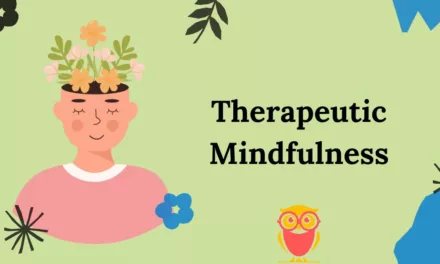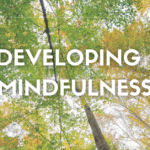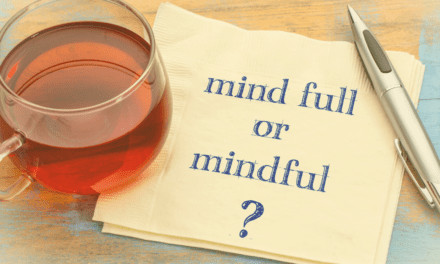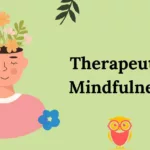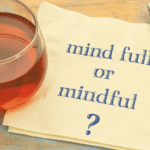
Mindfulness: A Comprehensive Guide – Written by AI

Mindfulness has become a buzzword in recent years, with everyone from health professionals to business executives praising its benefits. But what is mindfulness, exactly? And how can it help us in our daily lives?
At its core, mindfulness is the practice of paying attention to the present moment, without judgment or distraction. It’s about being fully present, aware of your thoughts and feelings, and accepting them without trying to change them.
But mindfulness is more than just a simple meditation practice or breathing exercise. It’s a way of life, a mindset that can help us cultivate compassion, patience, and resilience in the face of life’s challenges.
In this comprehensive guide, we’ll explore the science behind mindfulness, the benefits it can bring to your life, and practical tips for incorporating mindfulness into your daily routine.
The Science of Mindfulness
Over the past few decades, researchers have been studying the effects of mindfulness on the brain and body. And the results are clear: mindfulness has a profound impact on our physical and mental well-being.
Here are just a few of the ways that mindfulness can benefit us:
- Reduces Stress and Anxiety
Stress and anxiety are two of the most common mental health issues in the world today. And while there are many treatments available, mindfulness has been shown to be particularly effective.
Studies have found that mindfulness can reduce symptoms of anxiety and depression, and even lower levels of the stress hormone cortisol. This is because mindfulness helps us regulate our emotions and reduce negative thoughts, allowing us to stay calm and focused even in stressful situations.
- Improves Cognitive Function
Mindfulness has also been linked to improvements in cognitive function, including memory, attention, and decision-making. This is because mindfulness helps us tune out distractions and focus our attention on the task at hand.
- Boosts Immune Function
Believe it or not, mindfulness can even boost our immune system. Studies have shown that mindfulness can increase the activity of natural killer cells, which are responsible for fighting off viruses and other pathogens.
- Enhances Relationships
Finally, mindfulness can also help us build better relationships with others. By cultivating empathy and compassion, we can improve our communication skills and develop deeper connections with those around us.
The Benefits of Mindfulness
So now that we know the science behind mindfulness, let’s explore some of the benefits it can bring to our daily lives.
- Improved Focus and Concentration
One of the most immediate benefits of mindfulness is improved focus and concentration. When we practice mindfulness, we learn to tune out distractions and stay present in the moment. This can help us stay focused on our work, and avoid getting sidetracked by emails, social media, and other distractions.
- Reduced Stress and Anxiety
As we mentioned earlier, mindfulness can be a powerful tool for reducing stress and anxiety. By staying present in the moment and accepting our thoughts and feelings without judgment, we can learn to regulate our emotions and stay calm even in difficult situations.
- Increased Self-Awareness
Mindfulness can also help us become more self-aware. By paying attention to our thoughts and feelings, we can better understand our own motivations and behaviors. This can help us identify patterns of behavior that may be holding us back, and make positive changes in our lives.
- Better Relationships
As we mentioned earlier, mindfulness can also help us build better relationships with others. By cultivating empathy and compassion, we can improve our communication skills and develop deeper connections with those around us. This can help us build stronger personal and professional relationships, and lead to greater happiness and fulfillment.
- Improved Physical Health
Finally, mindfulness can also have a positive impact on our physical health. By reducing stress and anxiety, mindfulness can lower our risk of a number of health issues, including heart disease,
diabetes, and high blood pressure. It can also improve sleep quality and boost our immune system, helping us stay healthy and resilient.
How to Practice Mindfulness
Now that we’ve explored the benefits of mindfulness, let’s talk about how to practice it in our daily lives. Here are some practical tips for incorporating mindfulness into your routine:
- Start with a Formal Practice
One of the best ways to develop a mindfulness practice is to start with a formal practice, such as meditation. Find a quiet place where you won’t be disturbed, and spend a few minutes each day practicing mindfulness meditation. You can start with just a few minutes each day, and gradually increase the length of your practice as you become more comfortable.
- Practice Mindfulness Throughout the Day
In addition to formal meditation, you can also practice mindfulness throughout the day. This means staying present in the moment, and paying attention to your thoughts and feelings without judgment. You can practice mindfulness while you’re doing everyday tasks, such as washing dishes or walking the dog.
- Use Mindfulness Techniques to Manage Stress
When you’re feeling stressed or anxious, mindfulness techniques can help you stay calm and centered. For example, you can practice deep breathing exercises or body scans to help you relax and let go of tension.
- Cultivate Compassion and Empathy
Mindfulness is also about cultivating compassion and empathy for ourselves and others. Practice self-compassion by treating yourself with kindness and understanding, and practice empathy by putting yourself in others’ shoes and listening actively.
- Practice Mindful Eating
Finally, you can practice mindfulness while you eat. This means paying attention to the flavors, textures, and sensations of your food, and savoring each bite. Mindful eating can help you develop a healthier relationship with food, and improve your overall well-being.
In Conclusion
Mindfulness is a powerful tool that can help us cultivate compassion, patience, and resilience in our daily lives. By practicing mindfulness meditation, staying present in the moment, and cultivating empathy and compassion, we can improve our mental and physical well-being, and build deeper connections with those around us.
So why not give mindfulness a try? Start with just a few minutes of meditation each day, and gradually incorporate mindfulness techniques into your daily routine. With practice and dedication, you can transform your life, and experience the many benefits of mindfulness.
References
- Davis, D. M., & Hayes, J. A. (2011). What are the benefits of mindfulness? A practice review of psychotherapy-related research. Psychotherapy, 48(2), 198-208.
- Kabat-Zinn, J. (2013). Full catastrophe living: Using the wisdom of your body and mind to face stress, pain, and illness. Random House LLC.
- Carlson, L. E., & Garland, S. N. (2005). Impact of mindfulness-based stress reduction (MBSR) on sleep, mood, stress and fatigue symptoms in cancer outpatients. International Journal of Behavioral Medicine, 12(4), 278-285.
- Khoury, B., Lecomte, T., Fortin, G., Masse, M., Therien, P., Bouchard, V., … & Hofmann, S. G. (2013). Mindfulness-based therapy: A comprehensive meta-analysis. Clinical Psychology Review, 33(6), 763-771.
- Creswell, J. D., Pacilio, L. E., Lindsay, E. K., & Brown, K. W. (2014). Brief mindfulness meditation training alters psychological and neuroendocrine responses to social evaluative stress. Psychoneuroendocrinology, 44, 1-12.
- Luders, E., Toga, A. W., Lepore, N., & Gaser, C. (2009). The underlying anatomical correlates of long-term meditation: Larger hippocampal and frontal volumes of gray matter. NeuroImage, 45(3), 672-678.
- Tang, Y. Y., Ma, Y., Wang, J., Fan, Y., Feng, S., Lu, Q., … & Posner, M. I. (2007). Short-term meditation training improves attention and self-regulation. Proceedings of the National Academy of Sciences, 104(43), 17152-17156.
- Salzberg, S. (2011). Real happiness: The power of meditation: A 28-day program. Workman Publishing.
- Goldin, P. R., & Gross, J. J. (2010). Effects of mindfulness-based stress reduction (MBSR) on emotion regulation in social anxiety disorder. Emotion, 10(1), 83-91.
- Baer, R. A., Smith, G. T., Hopkins, J., Krietemeyer, J., & Toney, L. (2006). Using self-report assessment methods to explore facets of mindfulness. Assessment, 13(1), 27-45.
- Hölzel, B. K., Carmody, J., Evans, K. C., Hoge, E. A., Dusek, J. A., Morgan, L., … & Lazar, S. W. (2010). Stress reduction correlates with structural changes in the amygdala. Social Cognitive and Affective Neuroscience, 5(1), 11-17.
- Ludwig, D. S., & Kabat-Zinn, J. (2008). Mindfulness in medicine. Jama, 300(11), 1350-1352.
- Siegel, R. D., & Germer, C. K. (2012). Mindfulness and psychotherapy. Psychotherapy, 49(3), 271-285.


